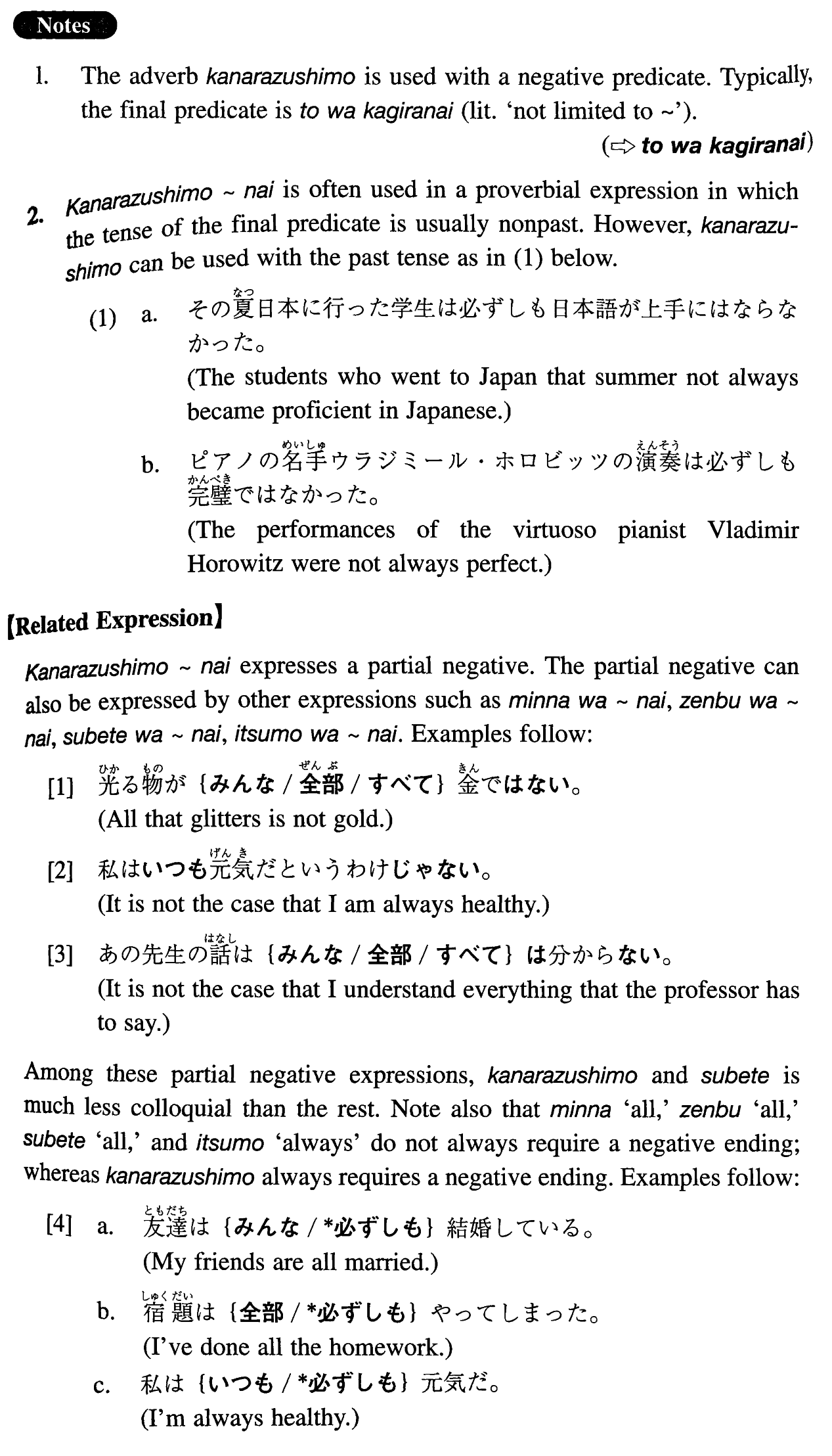
ホーム → 文法 → DoJG main menu → 中級編 → Intermediate Page 92
Adverb
| An adverb that indicates that the proposition expressed in the sentence is not always true. | Not always; not necessarily |
| 【Related Expression: いつもは~ない; みんなは~ない; 全ては~ない; 全部は~ない】 | |
(ksa). 頭のいい人が、必ずしも成功するとは限らない。
A bright person does not always succeed.
(ksb). 高い料理が必ずしも美味しいわけではない。
Expensive dishes are not always delicious.
(ksc). 記憶力のいい人が必ずしも外国語が上手だとは言えない。
One cannot always say that people with good memories are good at foreign languages.
(ksd). 日本人が必ずしもいい日本語の先生だとは思わない。
I don't think that a Japanese is always a good Japanese language teacher.
| (i)必ずしも{Vinformal/Adjectiveい} | とは{限ら /言え/思わ}ない | |
| 必ずしも{静か/先生}ではない | Something is not always quiet/someone is not always a teacher |
(a). 結婚しても必ずしも幸福になるとは言えない。
One cannot always say that marriage brings happiness.
(b). 運動をよくする人が必ずしも長生きするとは限らない。
People who exercise regularly do not always live long.
(c). 日本へ行った学生が日本語が上手になるかとうと、必ずしもそうではない。
Students who have been to Japan do not always become proficient in Japanese.
(d). お金は人を必ずしも幸福にはしない。
Money does not always bring happiness to people.
(e). 優れた研究者が必ずしも優れた教育者であるわけではない。
It is not always the case that an able researcher is an able educator.
(f). 良薬は口に苦しと言うが、苦い薬が必ずしもいいとは限らない。
They say good medicine is bitter, but bitter medicine is not always good.
(g). 眼鏡をかけて、カメラを下げて、集団で歩いている東洋人が必ずしも日本人ではない。
An oriental wearing glasses, carrying a camera and walking in a group is not always a Japanese.
